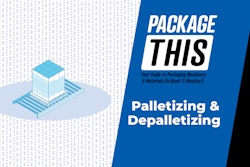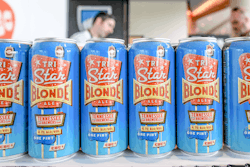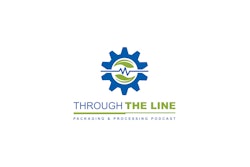Welcome to Package This, your guide to packaging machinery and materials.
Today our focus is on multipacking equipment – the machines that consolidate and group or bundle multiple containers or items together into a single, convenient consumer unit. Multipacks are increasingly popular in club store retail, so let's dive in to learn about the different machines used to make them.
Tray formers
First up: tray formers. These machines create sturdy corrugated trays for shipping multiple, heavy items, such as 24 cans of soup or a variety pack of 12 bottles of sports drinks. Tray formers transform die-cut corrugated flats into three-dimensional trays with sides and flaps, ensuring secure transportation of goods on the multipack.
Shrink bundlers and heat tunnels
Shrink bundlers and heat tunnels secure multipacks with shrink wrap film, providing protection during transit and tamper-evident features. In this example, the machine applies a loose wrap of heat-activated film over the tray of cans. As it passes through the tunnel, the machine applies either electric or steam heat at a high temperature that shrinks the film and envelops it over the product to form a tight shrink wrap. Now our tray of soup cans is ready for shipment.Handle and carrier applicators
Handle and carrier applicators are designed to attach carrying handles or structural carriers to multipacks, making them easier for consumers to transport multiple products at once. These machines apply various types of carriers, including paperboard and plastic-based solutions, depending on the product. Common applications could include six-packs of beverages, multipacks of condiment jars, or bundles of household cleaning products.
Sleever machines
Next, sleever machines wrap paperboard sleeves around multipacks of smaller, lighter items like yogurt or pudding cups, making them stackable and easily identifiable in stores. After cups are collated together, a sleever wraps paperboard around the top and bottom of the multipack. One side of the multipack is left open, making it easy for the consumer to open after purchase.
Banding equipment
Finally, banding equipment secures multipacks with plastic or paper-based strips for a flexible bundling solution. This family of machines includes stretch film banders, strapping equipment, paper-based banders, and other tying equipment that ensure products stay together securely. For example, banders may be used to place a tight plastic band around a group of three flexible bags of peanuts that are sold as a single unit.
And that’s a wrap on our video about multipacking! We hope you learned something new.
Thanks for sticking around to learn about multipacking. For more videos on packaging equipment and supplies, subscribe to Packaging World’s Youtube channel and get all of the videos in the Package This series.
And if you’re in the market for these machines or any other type of packaging equipment, visit PMMI ProSource at ProSource.org, a searchable directory with over 1,000 packaging and processing solutions.
Until next time, keep on packaging!

























